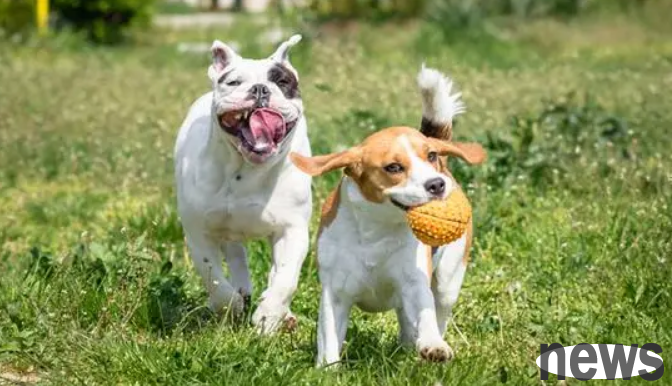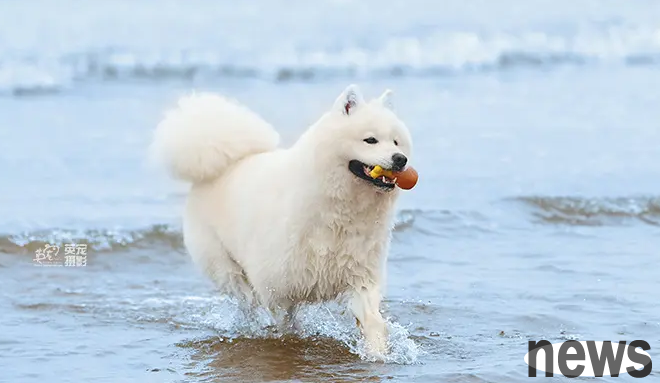After the accumulation of anal fluid for a long time, necessary cleaning should be carried out to prevent it from getting inflamed. Sometimes when we see a puppy grinding his butt to the ground, it may be that the dog's anal gland outlet is bloc...
After the accumulation of anal fluid for a long time, necessary cleaning should be carried out to prevent it from getting inflamed. Sometimes when we see a puppy grinding his butt to the ground, it may be that the dog's anal gland outlet is blocked and inflammation is caused. When there is mild blockage, the dog will grind its butt on the ground or lick its butt with its feet raised; in severe cases, it will cause difficulty in defecation of the dog and even cause greater pain. Therefore, you must pay attention to the cleaning of the anal glands. It is best to squeeze and clean before bathing the dog regularly every time, because the anal gland fluid is very smelly, and taking a bath after cleaning can remove the odor.
Anal glands are a pair of exocrine glands located in the skin mucosa below both sides of the anus and are found in all carnivorous animals. Its main function is to secrete some irritating odors as its mark. The anal glands are located at 4 or 8 o'clock in the anal skin mucosa, with the opening facing outward. Careful owners may observe two small eyes with needle tips and a trace of gray-brown secretion gushing out when the anus of the dog and cat contract.

Dirty things will gather in the anal glands. The puppy cannot discharge it by itself and needs to squeeze it out. If the anal glands are full, it is easy to smell and cause anal inflammation.
Anal glands are the "smell glands" of dogs, distributed on both sides of the anus, connecting the skin at the end of the intestine to form a larger cavity and accumulate fluid. If blocked, the dog will show some irritability symptoms:
1. Rub the buttocks on the floor;
2. Bite the buttocks;
3. Turn around and bite the tail;
4. Touch its buttocks very sensitively;
5. Pull the tail instead of raising the tail very high, and sometimes the tail between the legs.
Some dogs do not seem to have any signs of these abnormal reactions, but the odor is particularly strong.
Dogs are often chewed with bones. Exhaust with enough calcium precipitates will harden the excrement and the sac will naturally become empty. Now there are less and less natural feed for feeding, and more and more dogs need to empty their glands. If they are not cleared in time, cysts will form.
Cleaning steps:
1. Clean the anus with warm water, the skin will become soft and the dog will relax. At this time, the glands are easier to empty in most cases;
2. Place your thumb and index finger on both sides of the anus, touch the two hard glands, squeeze upwards and outwards to drain the foul-smelling liquid. Some of these liquids are as thick as ivory paste, while others are as clear as water.

There are also tips for clearing the anal glands. Some dogs' glands are easy to be emptied, while others are not so easy. Therefore, you need to explore more to master the skills of quickly and accurately clearing the glands to relieve dogs' disgust. The anal glands are very sensitive areas and have a foul smell. If the stagnant cannot be discharged, it is best to advise the owner to take the dog to the veterinarian for examination to avoid the development to a more serious level.
The following is a specific method to clean the anal glands:
1) Lift the tail, put toilet paper or plastic bags on the anus, place your thumb and index finger on the swollen place on both sides
2) Squeeze the thumb and index finger in the direction of the anus and squeeze the secretions out
Remember, when squeezing, it is best to cover the anus with tissue or cotton to avoid stinky water splashing on the body.
Check the fluid sacs in the anus regularly. How long does it take to clean it depends on the frequency of knot accumulation in each dog. Some once a month, while some will not accumulate in two or three months, and some do not need to be cleaned at all. Smaller species of dogs are more likely to get blocked than large dogs, probably because they eat more softer and more food than large dogs, resulting in harder substances.